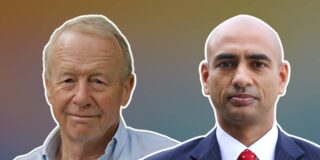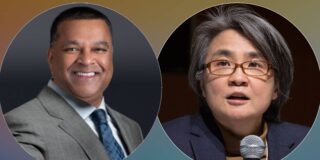In June, Switzerland convened a summit on the Russia–Ukraine War, bringing together around 90 heads of state to foster dialogue and seek a peaceful resolution based on international law. While the summit made progress on food security and humanitarian aid, it faced criticism for limited inclusivity due to the absence of many nations from the Global South and, above all, Russia. Despite these limitations, the event served as an important platform for discussing potential paths to peace.
The war’s impact on Europe has been significant. Heightened energy prices have affected countries heavily reliant on Russian gas, such as Germany. European nations have also diverted resources and attention toward Ukraine and away from other crucial areas like social spending and healthcare. Most fundamentally, the war has shattered the last remnants of trust between the East and West, leading many European nations to up their defense budgets in anticipation of a potential direct conflict with Russia.
Switzerland in the middle of an increasingly anxious Europe
Reflecting this defensive attitude, EU High Representative Josep Borrell said that Europe is a garden and the rest of the world is a jungle. Germany has closed its borders, apparently to avoid the jungle taking over the garden. Switzerland takes a more moderate approach. While acknowledging migration and integration challenges, the country emphasizes the need for proactive and inclusive migration policies.
Right-wing leaders are in charge in many parts of Europe, like Robert Fico in Slovakia and Viktor Orbán in Hungary. In Germany, the Alternative für Deutschland (AfD) party is on the rise, and in France, the National Rally party made a decent dent in the latest parliamentary elections. Switzerland finds the rise of right-wing, anti-immigrant populist movements across Europe to be a cause for concern. Unlike other European countries, though, Switzerland is a decentralized confederation. This offers a degree of resilience against nationalist trends that would seek to dominate politics at the countrywide level. Yet Switzerland remains uneasy about the deeper political and social crises of which the rise of the far right is a manifestation.
Switzerland the investor
In lighter news, Switzerland, Iceland, Liechtenstein and Norway signed a free trade agreement with India in March. Swiss diplomat Ralf Heckner has received the credit for achieving what the EU, the UK and the US failed to do. The secret of Swiss success is the country’s independent position. As a non-member of major trade blocs, Switzerland has greater flexibility in forging agreements with emerging markets. Additionally, India’s status as a rapidly growing economy and Switzerland’s political commitment to strengthening economic ties played crucial roles in the successful negotiations.
Switzerland is looking east for economic growth, with China and India among its top export markets. However, the country has adopted a cautious approach toward China’s increasingly assertive foreign policy, economic slowdown and challenges faced by private actors.
Switzerland the peacemaker
As a famously neutral territory for peace talks, Switzerland hosted a summit to resolve Sudan’s ongoing civil war. Yet Sudanese General Abdel Fattah al-Burhan, head of the Sudanese Armed Forces, decided to sit the talks out. Despite his absence from recent negotiations, Switzerland remains committed to facilitating dialogue and humanitarian access.
Switzerland has faced more than one setback in Africa in recent times. The cocoa crop in Côte d’Ivoire and Ghana is facing its third tough year in a row. Chocolate-loving and chocolate-producing Switzerland may need to diversify its cocoa supply chain and include more suppliers from Latin America, with which it maintains cordial relations.
Finally, remaining in the Western Hemisphere, Switzerland views the current state of American democracy with concern, particularly regarding the deep political polarization and potential challenges to the peaceful transfer of power. The US is the preeminent global superpower, and uncertainty about its future direction adds to instability everywhere.
To manage these risks, Switzerland has adopted a flexible and open-minded approach, maintaining communication channels with both major political parties in the US. This proactive strategy ensures continued cooperation and stability in its relationship with the global superpower, regardless of the election outcome.
[Peter Choi edited this podcast and wrote the first draft of this piece.]
The views expressed in this article/podcast are the author’s own and do not necessarily reflect Fair Observer’s editorial policy.















Comment